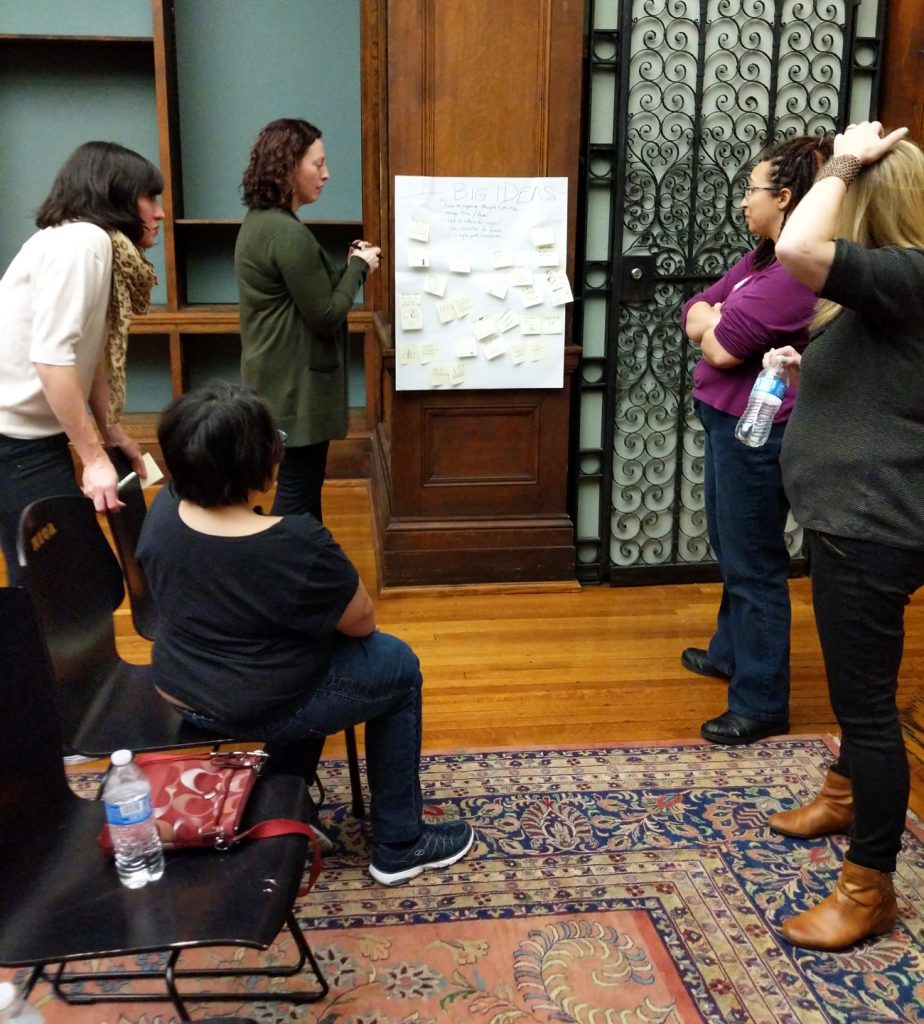Recently, I caught up on old podcasts. Every year around the holiday, I have a whole shelf full of books articles, sometimes the occasional tax form that I wait to deal with during “down”-time (I really don’t know what that is… Is there ever “downtime” i.e. when the mac takes 5 minutes to start I have to make some tea). This year, and I suspect on into the future, my shelf was also digital. I had podcasts galore to listen to. (I heard bits of Tracy Morgan on Fresh Air and you may want to check that out…) But design-related, I got to see Baltimore’s Ellen Lupton give a talk discussing the design of everyday things.
Design Your Life: The Pleasures and Perils of Everyday Things (Paperback) Ellen and Julia Lupton
I’ve yet to read the book published in May 2009, but it’s right up my alley, behind Back of The Napkin by Dan Roam and Moneyball by Michael Lewis borrowed from a friend. (if you’re putting two and two together and reading these posts, you’d know that if I can reference the Jersey Shore punchout, I’m not reading enough.) Anyway, “reading” the podcast available as part of the sva.edu series of lectures discusses the premise of the book—a great one.
The premise is how, we as designers are poised to question the design of things in our lives. Not that only designers can do this but designers being familiar with the process of constructing and de-constructing design (I would think are poised to really take hold in questioning our world) though the book is positioned to a general market which I think is great, because in this burgeoning world where everyone thinks they can design a fashion line, everyone could use a discussion on the design of “things”.
One curious moment in the podcast was Ellen’s observation of why so many pillows on the hotel bed? More than anything the podcast id two things: made me want to read the book and make me ask about the “everyday decisions” that people make—in this case couples.
My wife and I are a test case in this regard. I’ve been a coffee-drinker for about 15 years now. As a kid, my only reason for even looking in coffee’s direction is to assess how much like hot chocolate I could make it. Well, as an adult, realizing that the hot chocolate pushed on the store shelves is a tired hack of what is better found in premium locations, coffee became the choice du jour (good coffee nowadays seems so much more available).
Recently, we had a difference of opinion over two very mundane household products: the coffemaker and the wine opener. I don’t know what most couples do in this instance, but in ours two coffeemakers exist side-by-side and get used based on setting.
My items are the plain ones. Hers are the intricate, elaborate ones… The ones that are fixtures in catalogs that may come around this time of year. All this boiled down to a philosophy that I have about products: don’t get much more than will break and get something that even if it “breaks” it still works. For instance, here’s a photo of a coffeemaker that had been in our house. this is three coffeemakers ago!!! Why on earth do they break? And then on the morning and as much as the week afterward, I feel like the Resistance making coffee on-board that ship in the Matrix.
The wine opener is the same way. I understand because it makes it easier for my wife to open a bottle, but outside of that, I resent the plug being into the wall and I expect the wine opener to pay its share of the bill.
As for my coffee press… simple enough. No alarm clock, no filter, just me and the coffee and a little work. Same with the standard wine opener you’d expect the server at your favorite restaurant to have. (They open the bottle so quickly, I just had to learn to make it that easy on myself: kinda reveals my priorities, huh?). But to analyze this even more, it even goes to things I buy:
• Not the latest iPod or iPhone Reason: I went for a bike ride and the phone I had at the time Motorola Q got caught in a 45 minute rainstorm despite being told on television no rain was imminent. (Wife said otherwise and I’ve yet to live that down). So, I’d be out such and such dollars and as it seems a massive chunk of productivity.
• Solid state stereos with no AUX channel… Just think if you lived in the 8-track days and the stereos changed each time and it didn’t die, it just became something you could no longer use ’cause the whole world changed around you how terrible that would feel. Realistically, if the component at least has an AUX panel you’ll be able to feel it music no matter how far into the future the thing goes—even if say the CD player stopped working.
Cars with needless electronics… I heard this on Cartalk once: “After 1990, the amount of electronics that are installed into cars increased dramatically”. In some cases that’s good: enhanced fuel consumption, better engine timing and less emissions. On the other hand, it means mucho dinero when you’ve got a engine diagnostic issue. I know I must’ve bought somebody a boat after my wife had a Honda, a Honda (like the one in Pulp Fiction) of all cars that went in for service (I won’t say where) and came out with the engine light on and the radiator cap not screwed on tight.
The latter issue caused drama on the return trip from Canada, but that light ended up being on the rest of the time we had the car… They couldn’t fix it. It was like a terminal illness: Decent car whose life was “shortened”. Certainly that precipitated not only bad feelings over the cost of “fixing” it (although I’m handy, our household is in a let’s say “detente”—a la the Cosby Show where Claire wouldn’t “let” Heathcliff work on anything—where I often defer against working on her things just in case something went wrong. it’s one thing to have a “bad” mechanic work on your stuff, a whole ‘nother thing to live with’em.)
But, personally this dilemma has worked its way into my own vehicular situation. I own a ’72 Karmann Ghia, which is like an Audi TT built from the frame of Herbie The Lovebug—all good times and looks, no real speed. No electronics other than the radio and lights. it’s great, but also a car that needs to be tuned every season and difficult to manage without any handiness… Also, I have a ’99 Audi with all the comforts of the modern day. What does this mean? Sometimes going in for service, yet rebelling and fixing things on my own as my wallet dictates.
It leaves me with the question as to the complexity of things is both a good and bad thing, and that relates to the design of the relationships we have with them. The $35 coffeemaker that isn’t too ornate and works is a success. But that next day when it breaks, I’m like WTF? Similarly, I don’t need the style points when opening wine if I have to perpetually charge the thing. Nor, do I need the hassle of a $400 charge to re-code the electronic key for the door of the car… “I just need to get in the car!!!”
That said each of these options is an improvement, or so we thought, at some point. But at what point is too much, too much?



